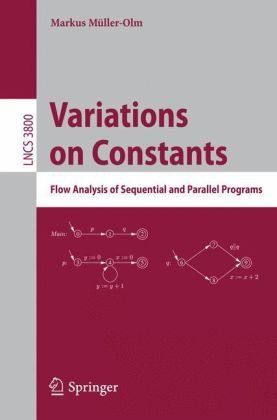

Most ebook files are in PDF format, so you can easily read them using various software such as Foxit Reader or directly on the Google Chrome browser.
Some ebook files are released by publishers in other formats such as .awz, .mobi, .epub, .fb2, etc. You may need to install specific software to read these formats on mobile/PC, such as Calibre.
Please read the tutorial at this link: https://ebookbell.com/faq
We offer FREE conversion to the popular formats you request; however, this may take some time. Therefore, right after payment, please email us, and we will try to provide the service as quickly as possible.
For some exceptional file formats or broken links (if any), please refrain from opening any disputes. Instead, email us first, and we will try to assist within a maximum of 6 hours.
EbookBell Team

0.0
0 reviewsProgram analysis is concerned with techniques that automatically determine run-time properties of given programs prior to run-time. It is used for validation in order to ensure that programs serve their intended purpose and in further processing for efficient execution such as in optimizing compilers. Optimal program analysis provides a guarantee about the precision of the computed results.
This monograph, a revised version of the author's habilitation thesis, focusses on optimal flow analysis of sequential and parallel programs. It studies algorithmic properties of various versions of the well-known constant-propagation problem. In order to come to grips with the variants considered, it combines techniques from different areas such as linear algebra, computable ring theory, abstract interpretation, program verification, complexity theory, etc. Combination of techniques is the key to further progress in automatic analysis and constant-propagation allows us to illustrate this point in a theoretical study.
After a general overview, the monograph consists of three essentially self-contained parts that can be read independently of each other. These parts study: a hierarchy of constants in sequential programs, inherent limits of flow analysis of parallel programs, and how to overcome these limits by abandoning a classic atomic execution assumption.